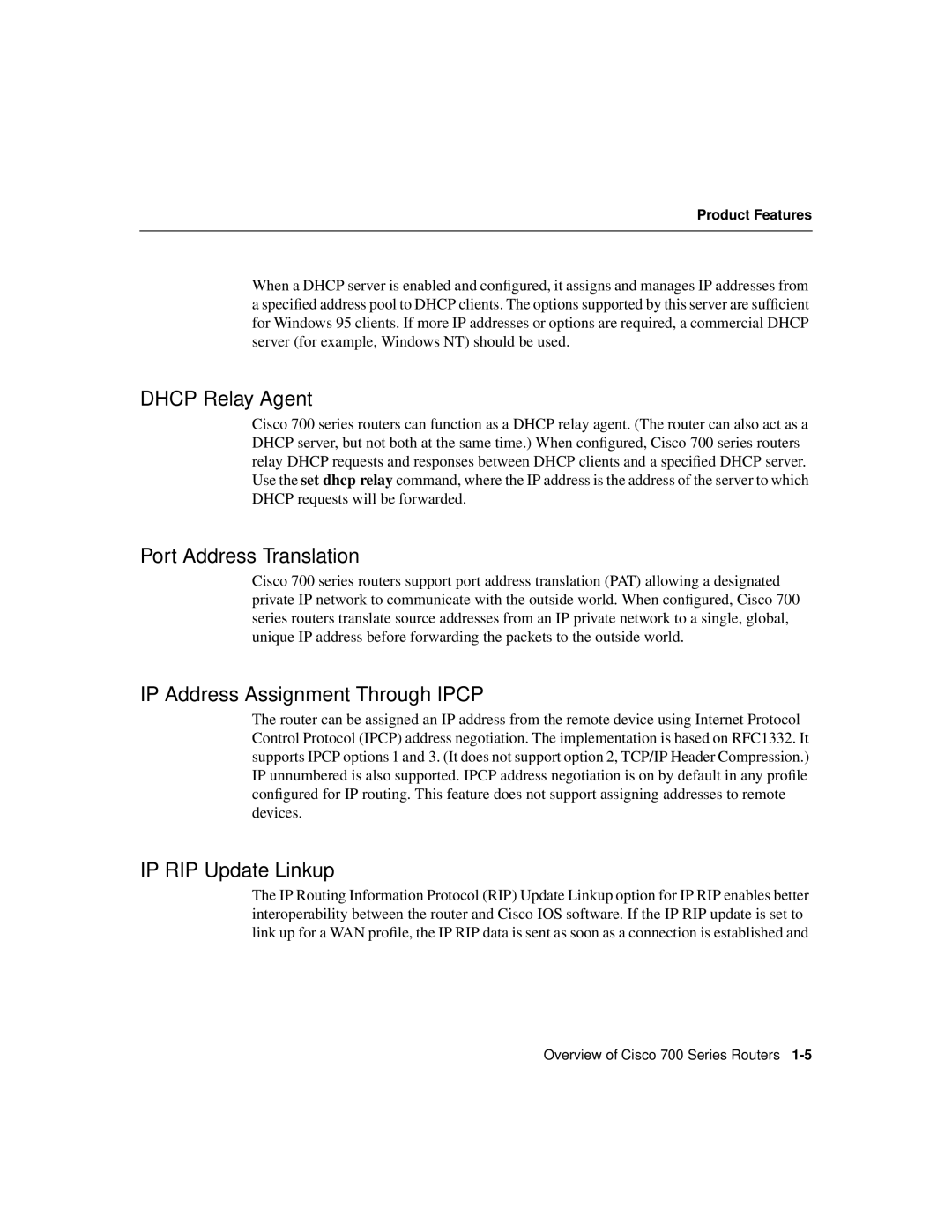700 Series specifications
Cisco Systems, a leader in network solutions and technology, offers a robust line of products tailored for businesses of all sizes to enhance their connectivity and operational capabilities. Among their noteworthy products is the Cisco 700 Series, a collection of routers designed to deliver exceptional performance, reliability, and security for various networking environments.The Cisco 700 Series routers stand out for their scalability and versatility, making them ideal for small to medium-sized businesses and branch offices. One of the key features of these routers is their support for integrated application visibility and control, allowing businesses to monitor network performance and optimize bandwidth usage effectively. This capability ensures that applications run smoothly while providing IT administrators with valuable insights into their network activities.
Another significant characteristic of the Cisco 700 Series is its robust security features. These routers are equipped with advanced security protocols, which include encryption and authentication mechanisms designed to protect sensitive data from unauthorized access. Additionally, the devices support secure VPN connections, enabling secure remote access for employees working from different locations, an essential feature in today’s hybrid work environment.
The Cisco 700 Series also leverages cutting-edge technologies such as Cisco's Intelligent WAN (IWAN), which enables efficient routing and load balancing across multiple connections. This feature optimizes the performance of applications by intelligently routing traffic based on real-time network conditions. Furthermore, the series supports Software-Defined WAN (SD-WAN), allowing businesses to manage their WAN resources more flexibly and cost-effectively.
In terms of physical design, the Cisco 700 Series routers are compact and designed to fit seamlessly into office environments. Their ease of installation and management make them accessible for organizations that may not have extensive IT resources. The user-friendly interface and management tools enhance the overall user experience, allowing network administrators to configure and troubleshoot effectively.
In summary, Cisco Systems' 700 Series routers deliver a powerful combination of performance, security, and scalability. By integrating advanced technologies, these routers provide businesses with the tools necessary to enhance their networking capabilities and support their transition into a more connected and digital future. With features tailored to meet the demands of modern workplaces, the Cisco 700 Series stands as a reliable choice for organizations aiming to optimize their network infrastructure.
